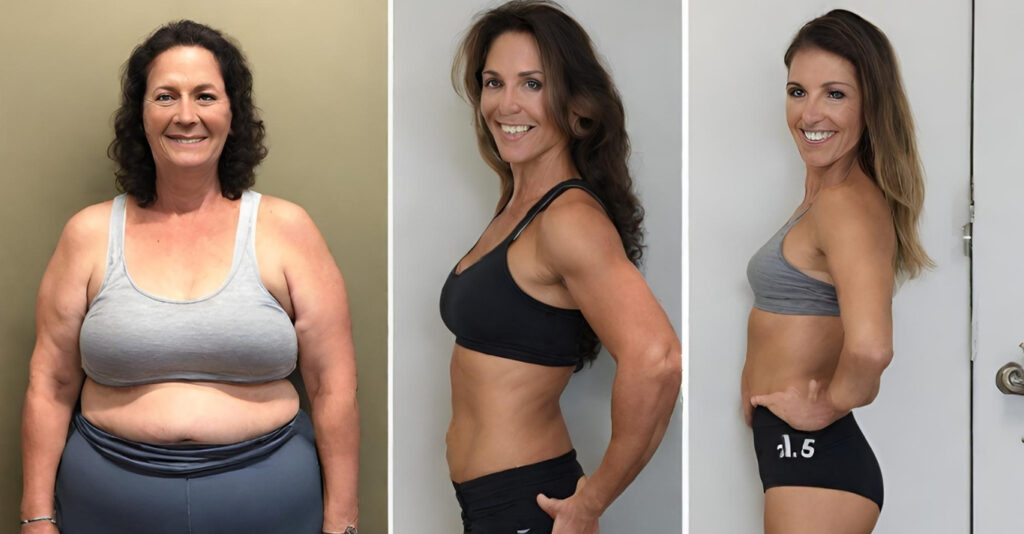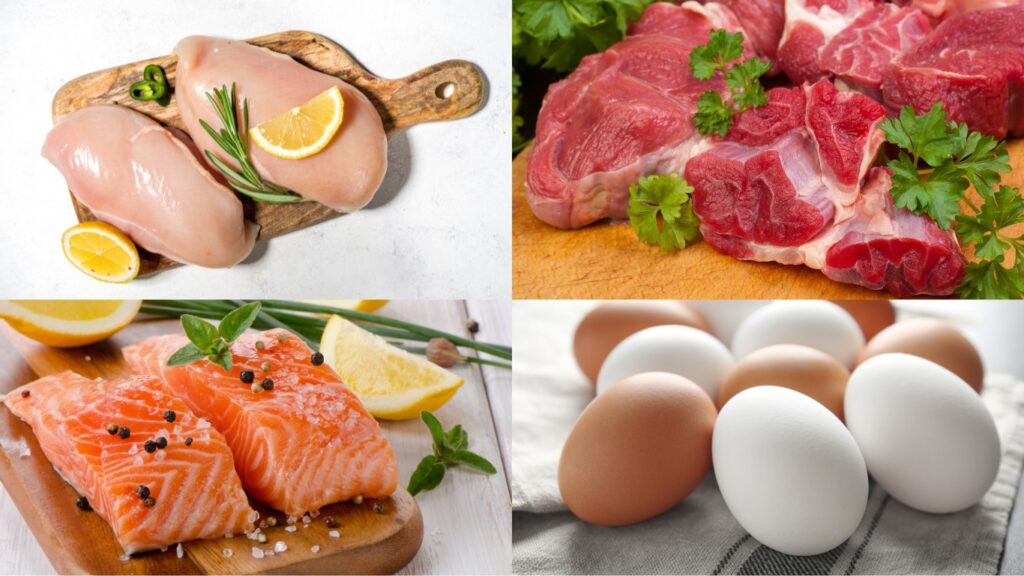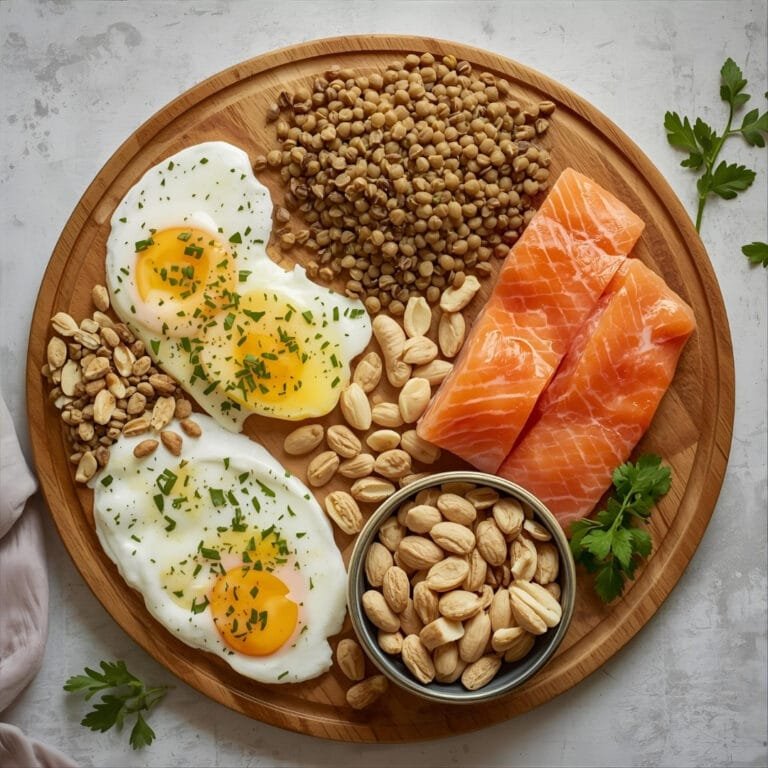Disclosure:
Thank you for reading this post, don't forget to subscribe!
Some of the links on this website are affiliate links. This means that if you click on the link and make a purchase, we may receive a small commission at no extra cost to you. Your support helps us keep the site running.Learn more on my Privacy Policy and Affiliate Disclosure page. Thank you for your support!

The Ultimate Guide to Building Muscle and Losing Fat While Dieting
The Magic Ratio: Macronutrients for Muscle Gain and Fat Loss
The cornerstone of building lean muscle tissue while simultaneously losing fat lies in your ratio of protein, carbohydrates, and fats consumed. For most individuals, a 50% protein, 20% carbohydrate, and 30% fat split is ideal for achieving this goal.
discover more about: Men’s Health: How to Achieve Body Recomposition
A reputable fitness resource discussing the steps to achieve body recomposition effectively.
Calories: The Fuel for Transformation
Another crucial factor in body recomposition (building muscle and losing fat) is your total daily calorie intake. The 50-20-30 macronutrient ratio generally allows you to consume more calories compared to a lower-fat diet. Remember, it’s nearly impossible to gain muscle mass in a calorie deficit (burning more calories than you consume).
Calorie Needs for Muscle Growth
To stimulate muscle growth, you likely need between 12 and 18 calories per pound of bodyweight. Men can typically start with 15 calories per pound, while women can begin with 12-13 calories per pound.
Understanding the Body Composition Battleground
Think of your body fat and lean muscle tissue as competing magnets, each vying for the calories and carbs you consume to either store fat or build muscle, respectively. The more body fat you possess, the higher the chance that additional calories and carbs will be stored as fat. Conversely, a greater percentage of lean muscle tissue allows you to consume more calories without unwanted fat gain.
Read next:
Master Food List: Your Guide to Smart Choices
This list provides a framework for making optimal selections within each food category. Feel free to substitute freely within a category for variety. For instance, if you’re tired of sweet potatoes, replace them with a cup of black beans. Likewise, swap out apples for strawberries if you desire a change. This is your personalized food guide!
Protein Powerhouses
- Chicken Breast: Fresh, frozen, or pre-cooked rotisserie chicken breast offers a convenient and lean protein source.
- Fish: Canned tuna or salmon and fresh/frozen options like tuna, salmon, cod, tilapia, or snapper are all excellent choices.
- Turkey: Ground turkey breast (at least 90% lean) provides a delicious change from chicken or beef.
- Beef: Opt for lean cuts like ground beef (at least 90% lean), filet mignon, sirloin steak, round, and flank.
- Protein Powder: UMP (Ultimate Muscle Protein) or Muscle Provider are high-quality options.

Non-Starchy Veggies: Filling and Nutrient-Rich
- Asparagus, green beans, lettuce (all varieties), spinach, cauliflower, celery, broccoli, cucumbers, onions, peppers (all varieties), summer squash, and tomatoes.
learn more about: Verywell Fit: The Science of Body Recomposition
A deep dive into how body recomposition works and what methods are most effective.
Fruits: Nature’s Candy (But Go Easy on Bananas)
- Apples, strawberries, cantaloupe, grapefruit, oranges, fresh peaches, raspberries, blueberries, pears, pineapple, and limited bananas.
Starchy Carbohydrates: Choose Wisely
- Brown rice, sweet potatoes or yams, red potatoes, white potatoes (in moderation), oatmeal, cream of rice, beans (black, pinto, kidney).
Healthy Fats: Essential for Overall Health
- Cashew butter, almond butter, peanut butter, heavy whipping cream, avocado, flaxseed oil, olive oil, safflower oil, Paul Newman’s Oil & Vinegar Dressing, EFA Gold (essential fatty acid supplement), almonds, and walnuts.
Free Foods: Flavor Boosters Without the Calories
- Vinegar, lemon juice, lime juice, mustard, garlic, mushrooms, onions, scallions, lettuce, cucumber, citrus peels, chili peppers, dry seasonings, salt, pepper, sugar-free gum, and sugar-free Jell-O.
Free Beverages: Hydrate Wisely
- Diet sodas, coffee, water, sparkling water, and tea.
read next:
Female Fat Loss Nutrition Plan: Level 1
Goal:
- Increase and define lean muscle mass.
- Minimize body fat.
- Enhance energy levels.
- Improve overall health.
Supplements:
A high-quality protein powder is your most crucial supplement. Muscle Provider Protein Powder are top choices.
Supplement Schedule:
- Multivitamins: Take daily
- Fat Burner (diet pills): If fat loss is your primary goal.
- Essential Amino Acid (EAA): If muscle gain is your primary focus.
- Glutamine: Mix 1-2 scoops in 8–16 ounces of water. Sip before or during training sessions.
Meal Frequency:
Consume 4-5 meals spaced 3-4 hours
Recent post:
- Gut Health Decoded: How Your Microbiome Shapes Energy, Mood, and Immunity
- The Science of Stillness: How Doing Nothing Can Heal Your Mind and Body
- Are You a Late-Night Snacker? 5 Possible Reasons Why You Can’t Stop Craving Food at Night
- The Ultimate Fat-Loss + Muscle Retention Blueprint (For Men)
- Smart Biceps Training: A Science-Backed Blueprint for Bigger, Stronger Arms
Conclusion:
By following the Female-Controlled Fat Loss Nutrition Plan – Level 1 and incorporating the recommended supplements and meal structure into your daily routine, you can accelerate your journey towards achieving a leaner, stronger physique. Remember to stay consistent, listen to your body’s signals, and adjust your nutrition plan as needed to optimize your results.
What aspect of the Female-Controlled Fat Loss Nutrition Plan resonates with you the most? Share your thoughts and experiences in the comments below!
Stay connected with MorningScape Mindset Media for more valuable insights and resources on nutrition, fitness, and overall wellness. Follow us on social media and subscribe to our newsletter to receive updates and exclusive content straight to your inbox.
share this post







